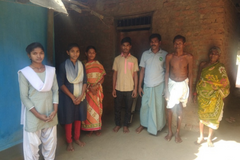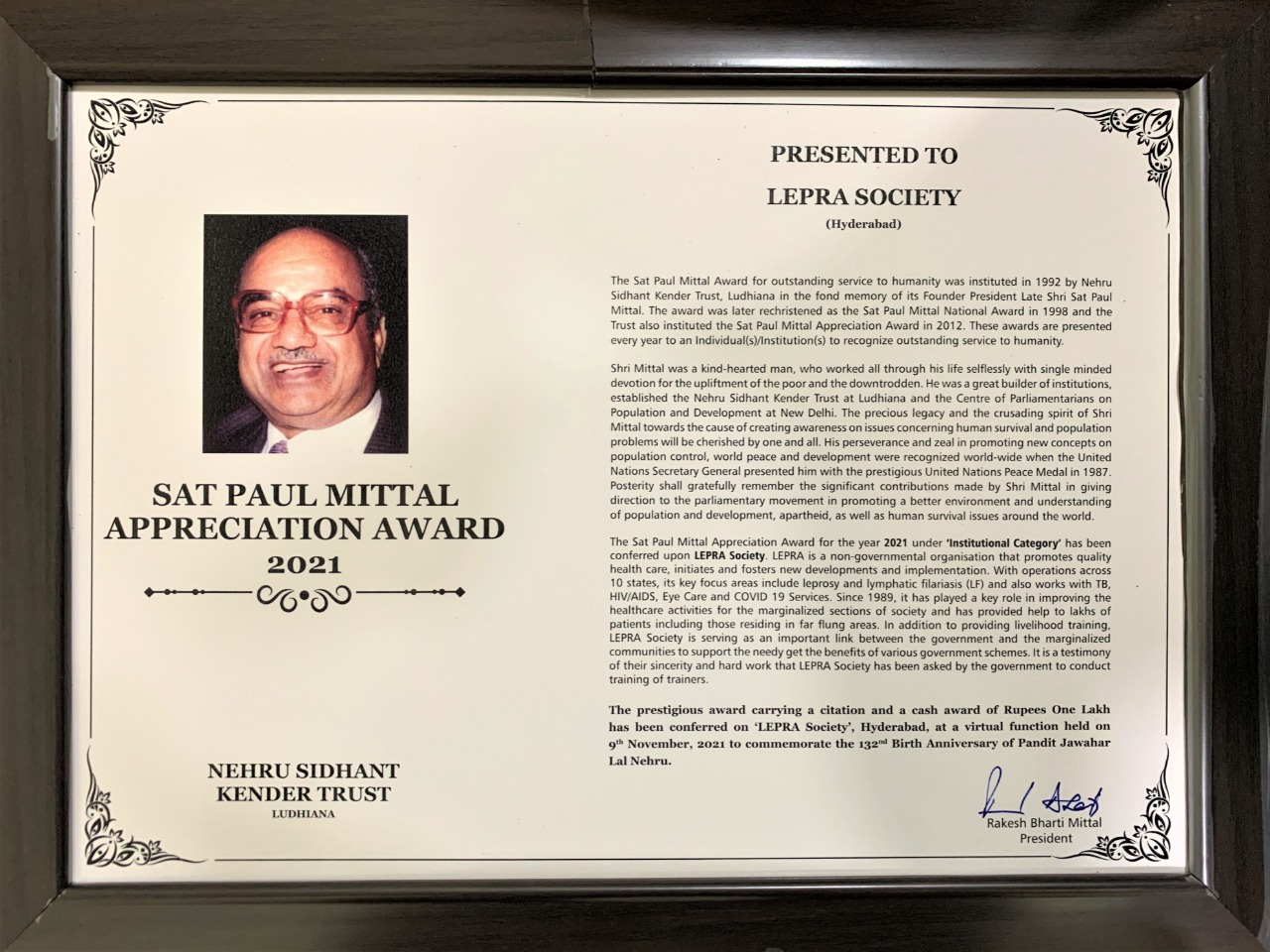 Gorimani Gond (19 year old) and Biswambar Gond (16 year old) children of Rupsing Gond residing at Mituguda village of Umerkote block in Nabrangpur district, Odisha. They belong to below poverty line category and Gorimani is in graduation and Biswambar in 11th grade. Rupsing works as a farmer for four months during the yield season and the remaining time of the year, he works as a daily wage worker. The family runs a small petty at their home premises which fetches a very minimal income. A total of 8 family members (grandfather, grandmother, father, mother, Gorimani, younger sister and a younger brother) live under the same roof. The three children (Gorimani and her younger siblings) are studying in a nearby school. The family collaboratively hold 2 acres of agricultural land which yields 30-35 kgs of rice annually.
Gorimani Gond (19 year old) and Biswambar Gond (16 year old) children of Rupsing Gond residing at Mituguda village of Umerkote block in Nabrangpur district, Odisha. They belong to below poverty line category and Gorimani is in graduation and Biswambar in 11th grade. Rupsing works as a farmer for four months during the yield season and the remaining time of the year, he works as a daily wage worker. The family runs a small petty at their home premises which fetches a very minimal income. A total of 8 family members (grandfather, grandmother, father, mother, Gorimani, younger sister and a younger brother) live under the same roof. The three children (Gorimani and her younger siblings) are studying in a nearby school. The family collaboratively hold 2 acres of agricultural land which yields 30-35 kgs of rice annually.
In April 2017, Gorimani’s father and grandfather were detected having Multi Bacillary Leprosy (one of the types of Leprosy) during LEPRA’s Leprosy Case Detection Campaign (LCDC) and they were immediately put on Multi Drug Therapy (treatment for leprosy) medication course. Her grandfather had multiple anesthetic patches (with no sense) and her father had discolouration of his face and earlobes thickened. The medical officer kept them under observation and requested LEPRA’s team to collect the skin smear for diagnosis and confirmation. After two months of treatment, Gorimani’s father suffered from reactions of leprosy and was admitted to Nabrangpur district hospital for reaction management and spent over INR 20,000 for the treatment. During our contact survey and case follow-up visit – the entire family of Gorimani were examined by LEPRA and identified that Gorimani and Biswambar are new cases and referred them to the Umerkote community health centre for further treatment. Gorimani was registered as Multi Bacillary case and Biswambar as Pauci Bacillary (another type of leprosy). Both were immediately put on MDT medications treatment and they completed the course successfully.
During this difficult phase, since the main earning members of the family were affected, it became challenging for them to sustain each and every day. Due to the financial constraints, Rupsing was worried about the education of his children. Apart from this, there was a fear of stigma and discrimination towards his children at school. The LEPRA staff counselled the school and college management on leprosy and explained in-detail which made them treat Gorimani and Biswambar with extra caution.
Understanding the whole situation, LEPRA’s team explained them about the education scholarship support programme. After completing the necessary assessment, Gorimani and Biswambar were provided educational scholarship support to continue their education. Gorimani is in her graduation and Biswambar got an admission in to the government ITI (industrial Training Institute) in fitter trade.
Four members of the family were infected by leprosy and LEPRA ensured all the essential follow-up, medication, treatment were received in time and supported them in linking with the government health schemes. All the four members are cured now as they were detected in early stages which helped us in preventing further disabilities and complications.
Rupsing, the father mentioned that without the support of LEPRA, he had no other option but to make his children discontinue their education. He was very thankful for the support as Rupsing always dreamed of getting their children educated and becoming independent. The children are continuing their education and looking forward to have a successful future with positive hopes.

